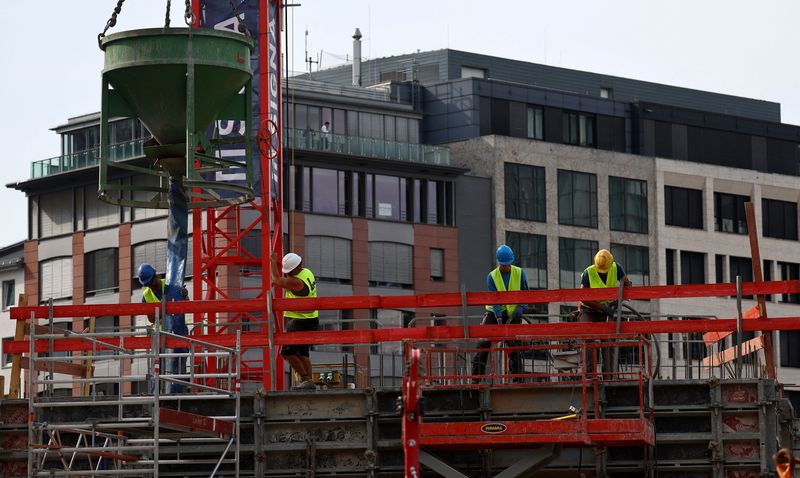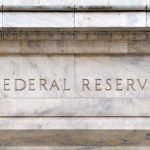
By Indradip Ghosh
BENGALURU (Reuters) – The euro zone economy will be hit with tariffs from the incoming U.S. Trump administration early next year, according to a majority of economists polled by Reuters, all but ensuring a series of interest rate cuts from the European Central Bank.
President-elect Donald Trump’s proposed across-the-board tariffs will have a significant effect on the euro zone economy over the coming two to three years, according to a strong majority of economists polled.
They have also raised the risks of reflation in the U.S.
“Many questions are unresolved, but for now the signs are for weaker growth, more likely disinflation and lower ECB policy rates,” said Greg Fuzesi, euro area economist at J.P. Morgan.
“The threatened tariffs would be much bigger this time round and could come at any time,” he said.
Nearly 85% of economists surveyed Nov. 8-14, 37 of 44, expected Trump’s proposed tariffs – a 10% universal levy on imports from all foreign countries and 60% on Chinese imports – to be implemented early next year.
About the same proportion, 34 of 39, said the tariffs would significantly impact the euro zone economy in the coming years.
Since Trump’s U.S. election victory last week, market pricing has swiftly changed towards fewer U.S. Federal Reserve rate cuts and more ECB reductions.
Some ECB officials have shared similar concerns. Bundesbank President Joachim Nagel recently said the tariffs, if implemented, could cost Germany 1% in economic output and it “could even slip into negative territory.”
Markets are now pricing around 150bps of ECB rate cuts between now and end-2025 against only around 75bps of Fed reductions, suggesting further challenges for the euro, which has dropped nearly 4% against the dollar since the election.
Most economists in the Reuters poll predicted a total of at least 125bps in reductions from the ECB by end-2025, only a bit shallower than market pricing.
Over 90% of economists, 69 of 75, forecast the ECB would lower its deposit rate by 25bps for the third consecutive meeting in December, with nearly 70%, 51, predicting two more cuts next quarter, bringing it to 2.50%.
While many downgraded their 2025 forecast, poll medians still expect the economy will grow 1.2% in 2025 and 1.4% in 2026, unchanged from last month. That suggests there are further downside risks to those numbers.
“There are a wide range of sub-scenarios which include a global rise in tariffs between the U.S., EU and China and a sharp increase in uncertainty around global protectionism is certainly significant,” said Henry Cook, senior economist at MUFG, who estimates a 0.4 percentage point hit to euro zone growth next year.
Inflation, at the 2.0% ECB target last month, will average 2.2% this quarter but return to target next quarter. It is forecast to be around there through 2027.
Nearly 70% of economists, 43 of 63, expected the deposit rate to be 2.00% or lower by the end of next year, a bigger majority than the 60% who said this in October. Among 44 common contributors in the two polls, 43% of economists, 19, downgraded their end-2025 rate forecasts.
The ECB doesn’t have an estimate for the neutral rate, which neither restrains nor stimulates the economy, but a staff-published paper earlier this year showed a real rate of around zero – or about 2% in nominal terms – when adjusted for inflation.
“Rather than the ECB policy rate returning to neutral in mid-2025 we now see the rate falling moderately below neutral by end-2025,” said Mark Wall, chief Europe economist at Deutsche Bank (ETR:DBKGn).
“The rationale in part relates to the prospect of U.S. tariffs under a new Trump administration and in part a weaker underlying macro performance and the emerging threat of below-target inflation.”
(Other stories from the Reuters global economic poll)







